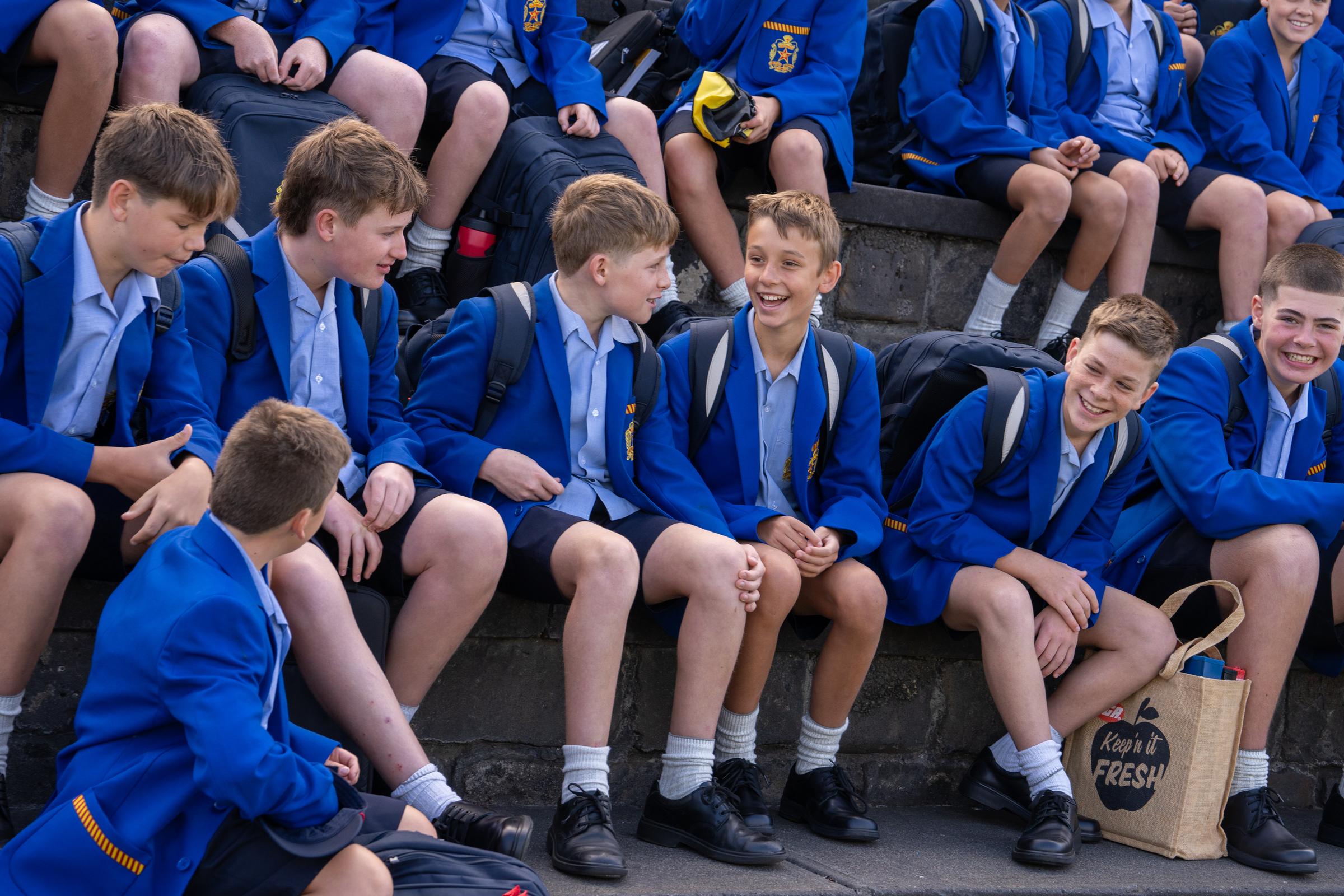Student Wellbeing

The Benefits Of Counselling
As our students embark on a new academic year, we understand that this can bring unique challenges and opportunities for personal growth. Our College is committed to providing a supportive environment to help every student navigate this important time.
A key aspect of this is our College Counselling service, which is here to assist any student in their emotional and mental wellbeing.
What College Counselling Offers
Our service is a confidential, professional and inclusive resource for all students from Years 7 to 12, across both campuses. It is designed to provide support for a range of issues, including but not limited to:
- Managing stress and academic pressures
- Building self-esteem and resilience
- Navigating friendships and social dynamics
- Coping with family changes or personal challenges
- Addressing feelings of anxiety or sadness, and many more
Our Counselling Team
We have a team of four experienced and caring College Counsellors that support students at our Bentleigh East and Mentone Campuses.
Bentleigh East Campus
Pooja Gupta - Monday to Thursday
Mentone Campus
Tyler Bierman - Monday to Friday
Chantelle Meyers - Monday to Wednesday and Friday
Scott Cadby - Monday to Friday
Throughout the year, our team regularly communicates with students via email, classroom visits and by speaking at year level assemblies. To complement this, our Wellbeing Team co-hosts sessions with expert guest presenters to speak to groups of students about topical issues.
How Students Can Access Counselling
- Self-referring to the Wellbeing Coordinator counselling@stbedes.catholic.edu.au
- Drop-in to our Wellbeing Office at our Mentone Campus (near the Chapel gardens)
- Requesting a referral from their Homeroom/Tutor Group teacher, Year Level/House Coordinator on their behalf
- Requesting a referral from their Parent/Guardian on their behalf (either via counselling@stbedes.catholic.edu.au or 9582 5999)
College Counselling is tailored to each specific student and can be offered one-on-one or in a group context. Support can also last from a ‘one-off’ session to weekly/ongoing appointments.
How Families Can Support
As parents/guardian, your role in your child’s wellbeing is invaluable. Some ways you can assist your child include:
- Helping them establish a balanced routine that includes time for study, relaxation, and hobbies
- Encouraging healthy sleep habits and a nutritious diet to support their overall wellbeing
- Being attentive to changes in their behaviour or mood, and gently ask how they are feeling if and when you notice any changes
- Promoting positive self-talk and help them set realistic goals for themselves
- Modelling healthy coping strategies, such as managing stress or problem-solving constructively
- Celebrating their achievements, no matter how small, to boost their confidence
- Encouraging open conversations about their feelings and experiences – but accept and understand if and when they may not want to open up to you (if this is the case encourage them to seek help elsewhere)
- Encouraging and reassuring them that seeking support is a sign of strength, not weakness
- Staying informed about the services and resources the school offers
If you have any concerns about your child’s wellbeing or feel that they could benefit from additional support, please do not hesitate to contact your child’s Year Level or House coordinator of myself. Our staff here to work in partnership with you to ensure your child’s wellbeing is prioritised.
Thank you for your ongoing support. Together, we can ensure the 2025 academic year is a positive and enriching experience for your child.
Scott Cadby, PACFA Reg. Clinical (21605)
Psychotherapist
BA (Psych) MPsychotherapyCouns
College Counsellor and Wellbeing Coordinator
Future Fit Masculinities - Student Wellbeing Program
We are proud to be at the forefront of student wellbeing with an innovative new program for students in Years 7 to 11, Common Ground Project: Future Fit Masculinities.
Delivered with our partner, The Foundation For Positive Masculinity, this educational pilot program centres on understanding and preventing gender-based violence. Gender-based violence, especially against women, is a serious and widespread problem in Australia. This program aims to understand the complex world our teens have to navigate and how gender stereotypes shape their experiences.
We are privileged to be the only educational provider in Victoria to participate in this program and look forward to sharing the insights and outcomes with you throughout the year. Future Fit Masculinities will allow us to promote, educate and encourage healthy and respectful relationships among school aged boys.
Please RSVP herefor the Parent Information Evening on Wednesday 19 February.
For more information, click on the flyer link below.
Social Media Safety
Social Media is an important tool to help students stay connected, communicate and express themselves. To help students have positive and safe online experiences, the Victorian Government has provided information about online safety and advice about what to do if anything goes wrong.
How secondary students can have a healthy relationship with social media, recognise online exploitation and what to do if something goes wrong online.
Helps parents and carers support their child to be safe online, recognise signs they need help and know what to do if they have an unsafe online experience.
The responsible use of Digital Technologies for schools is to engage with digital technologies in a safe and responsible manner, ensuring cybersafety and supporting student learning.
